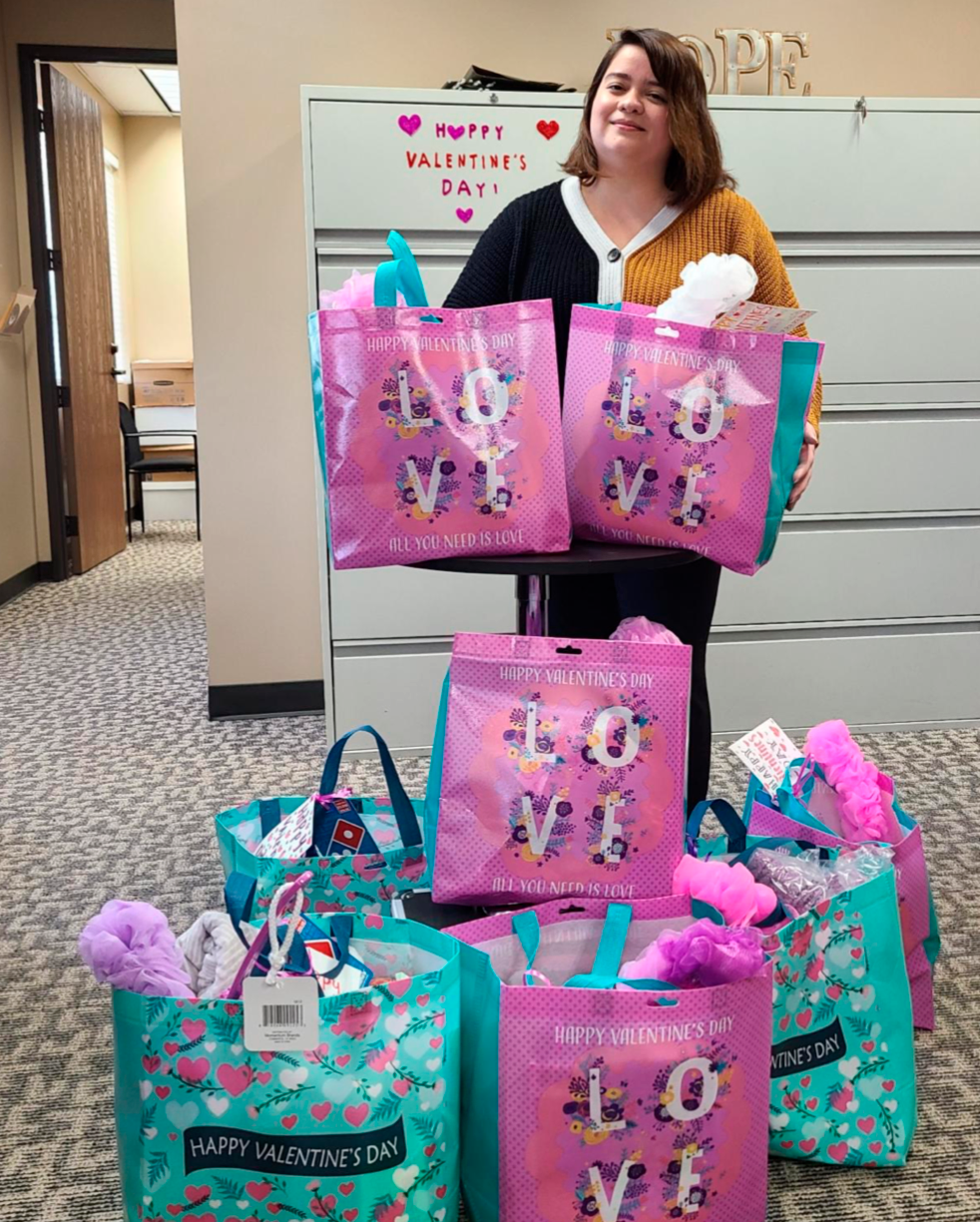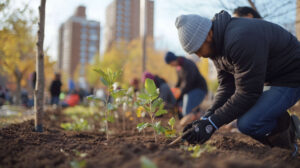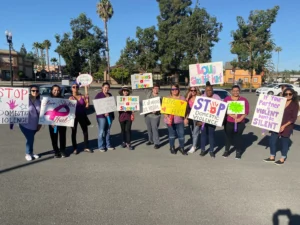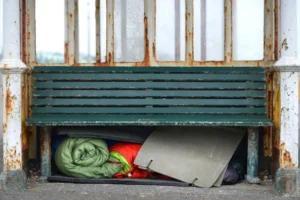Valentine’s Day has long been a celebration of love—a time of hearts, chocolates, and roses.
But amidst the roses and romance, a danger lurks, wreaking havoc on the lives of lovers everywhere. That threat is the “shadow pandemic” of intimate partner violence (IPV) or domestic violence abuse, largely brought about by the effects of the COVID-19 pandemic.
Holidays that revolve around love can be particularly painful and triggering to those who have endured domestic violence abuse. Since Valentine’s Day evokes an idealized notion of love, it can remind survivors of the good times they had with an abuser and create feelings of loneliness, which may tempt them to return to that abusive relationship.
This year, to mitigate these negative feelings and bring smiles to the faces of our clients, Crisis House partnered with the India Phillips Foundation to provide dozens of Valentine’s Day bags filled with toiletries, towels, washcloths, and other self-care products, along with a $25 gift card and a personal note for those who have experienced domestic violence abuse.
For survivors, recovering from abuse is a gradual process. It’s important to acknowledge that you have the power to redefine the day, event, or objects you associate with your trauma so that they no longer hold power over you.
If you are a domestic violence survivor, here are some steps towards empowerment that may help during this month: Seek support: Spend time with friends and family who make you feel validated and won’t encourage you to return to your abuser.
Take your own needs seriously: Do whatever makes you feel good and at peace. It could be meditating, reading, or taking a walk outside. Call for help: There are quite a few hotlines available for those who are or have experienced domestic abuse. You can call the National Domestic Violence Hotline at (800) 799-7233 or RAINN, the National Sexual Assault Hotline, which you can reach at (800) 656-4673.
Take self-defense classes: Self-defense classes are not necessarily a defense against a future incident of abuse, but as a way to make you feel stronger and less vulnerable. Talk it out: Talk with a therapist or a survivor group where you can be candid about the trauma you experienced.
If you would like to support our Journey Domestic Violence programming and help families and women renew their lives after abuse, please visit our website to learn how you can help!

